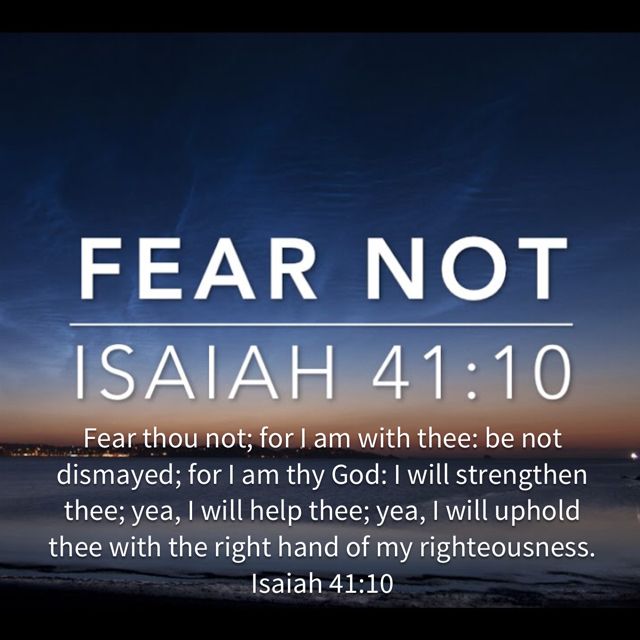THE SEED
Fear thou not; for I am with thee: be not dismayed; for I am thy God: I will strengthen thee; yea I will help thee; yea, I will uphold thee with the right hand of my righteousness. Isaiah 41:10(KJV)
Upliftment simply means an improvement of a person’s moral, social and spiritual condition. God alone has the power and the authority of upliftment, that is the reason we must submit ourselves totally to him. As stated in the above scripture, God promise to be with us, help us and strengthen us. The journey to the place of upliftment is full of challenges but with God’s promised help and strength, we shall get there and not be discouraged. When God lifted Abraham up he became the father of blessing and faith not without any trouble but God helped him. Divine lifting is God’s promotion, when God promotes you no man can demote you. Positioning oneself for Divine upliftment requires surrendering to God’s will. This means acknowledging that God knows what is best for us and He has plans for our lives. God will always guide our steps in the right direction and bless us beyond our wildest imaginations when we make God’s kingdom and His Righteousness our top priority. We will experience God’s blessings and upliftment in every area of our lives. Also, we must obey God’s word totally like Abraham, when we do this, we stand the chance of receiving His Abundant blessings, and when we walk in faith with God just like father Abraham did, every good thing we desire shall be released unto us.
BIBLE READING: Genesis 13: 14-18
PRAYER: Oh Lord my Father, lift up my head and let me continuously dwell in your glorious presence in Jesus Name. Amen.
IGBEGA LATORUN WA
IRUGBIN NAA
Má berù; nitori mo wà pẹlu rẹ: máṣe fòya; nitori emi li Ọlọrun rẹ: emi o fun o lokun,nitõtọ emi o ràn ọ lọwọ; nitõtọ, Emi o fi ọwọ́ ọtún ododo mi gbe ọ ró. Aísáyà 41:10 (KJV).
Igbega tumọ si ilọsiwaju ti iwa, awujọ ati ipo ti ẹmi. Ọlọrun nikan ni o ni agbara ati aṣẹ igbega, idi niyi ti a gbọdọ fi ara wa silẹ fun u patapata. Gẹ́gẹ́ bó ṣe wà nínú ẹsẹ Ìwé Mímọ́ tó wà lókè yìí, Ọlọ́run ṣèlérí pé òun máa wà pelú wa, ó máa ràn wá lọ́wọ́, á sì fún wa lókun. Irin-ajo lọ si ibi igbega ti kun fun awọn idojuko ṣugbọn pẹlu iranlọwọ ati agbara ti Ọlọrun ti ṣeleri, a yoo de ibẹ a ko si ni rẹwẹsi. Nígbà tí Ọlọ́run gbé Ábúráhámù sókè ó di baba ìbùkún àti ìgbàgbọ́ láìsí wàhálà kankan ṣùgbọ́n Ọlọ́run ràn án lọ́wọ́. Igbega latorun wa je igbega Ọlọrun. Nigbati Ọlọrun ba gbe ọ ga, ko si eniyan ti o le de ọ silẹ.Mimu Ara re si ipo ti o to fun igbega Ọlọrun nilo sise ifẹ Ọlọrun. Eyi tumọ si gbigba pe Ọlọrun mọ ohun ti o dara julọ fun wa ati pe O ni awọn eto fun igbesi aye wa. Ọlọ́run yóò máa tọ́ ìṣíse wa ní onà títọ́ nígbà gbogbo, yóò sì bùkún wa kọjá oye wa nígbàtí a bá fi ìjọba Ọlọ́run àti Òdodo Re sí oun ti o se pataki julo fun wa. A o ni iriri awọn ibukun ati igbega Ọlọrun ni gbogbo ona aye wa. Bákan náà, a gbọ́do ṣègbọràn sí Oro Ọlọ́run gẹ́gẹ́ bí Ábúráhámù, nígbà tí a bá ṣe èyí, a dúró ní àǹfààní láti rí àwọn ìbùkún re gbà, nígbà tí a bá sì ń rìn nínú ìgbàgbọ́ pelú Ọlọ́run gẹ́gẹ́ bí baba Ábúráhámù ti ṣe, gbogbo ohun rere tí a fẹ́ ni a ó Fi fún wa. .
BIBELI KIKA: Jẹ́nẹ́sísì 13:14-18
ADURA: Oluwa Baba mi, gbe ori mi soke ki o si jẹ ki n ma gbe ni iwaju ogo rẹ ni orukọ Jesu.Amin.
